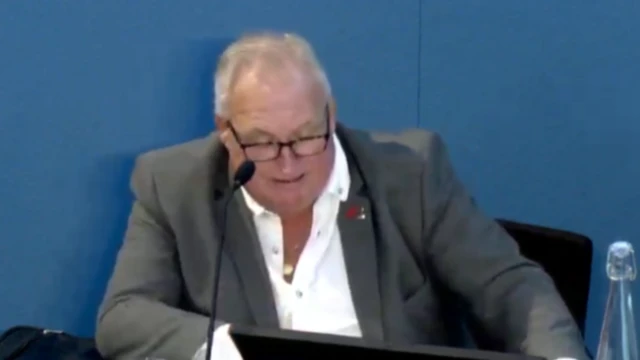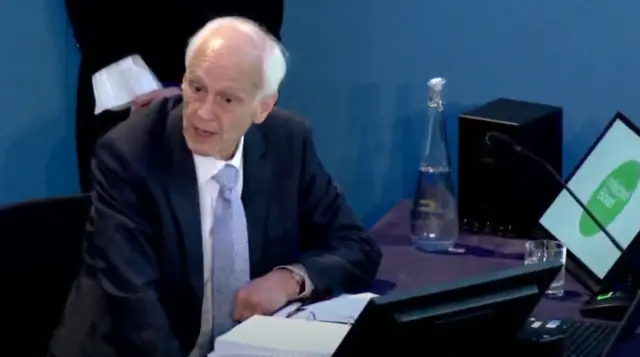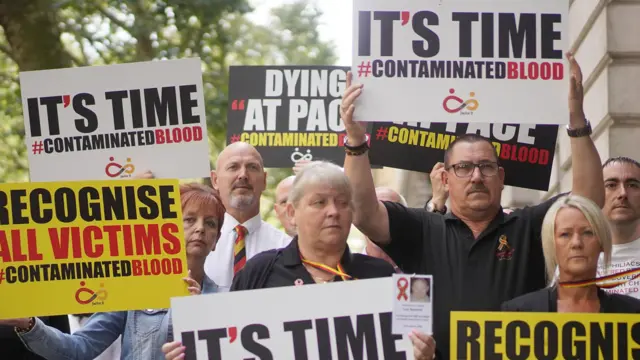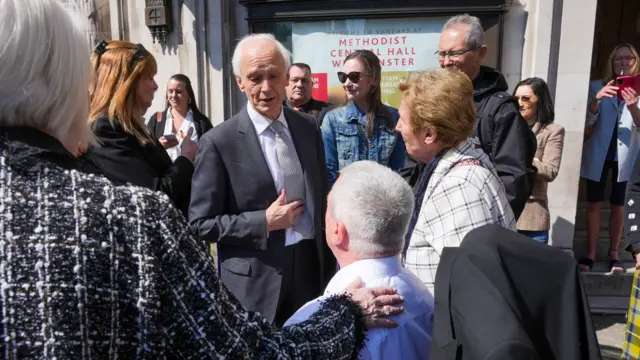'The elderly are dying without seeing compensation,' victim sayspublished at 10:42 British Summer Time 7 May
 Image source, Infected Blood Inquiry
Image source, Infected Blood InquiryAlan Burgess, who was 27 when he was given infected blood, speaks at the inquiry
Alan Burgess, of The Birchgrove Group, says the Cabinet Office were "condescending" and "talked down" to him and representatives of his campaign group.
He says victims had "shocking" mental health problems due to the compensation scheme.
"The elderly are dying - without seeing this compensation paid," he says. "I didn't expect sympathy, but we didn't even get any empathy."
The BBC spoke with Burgess, who was 27 when he was given blood infected with HIV and hepatitis C while being treated for haemophilia, last year. He said his diagnosis completely changed his life.




